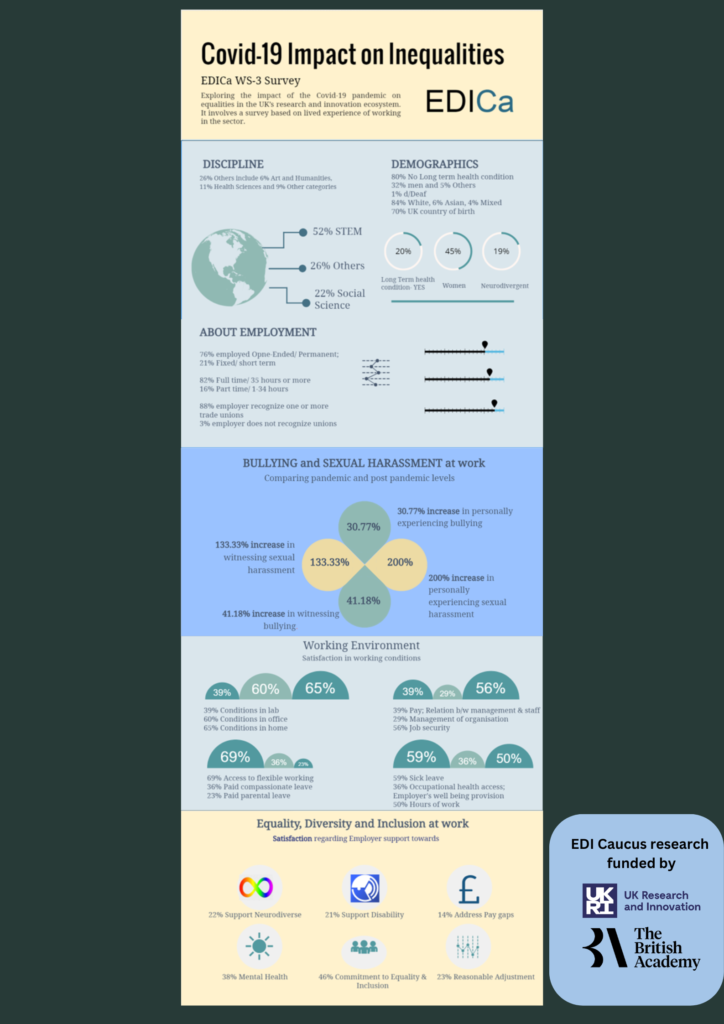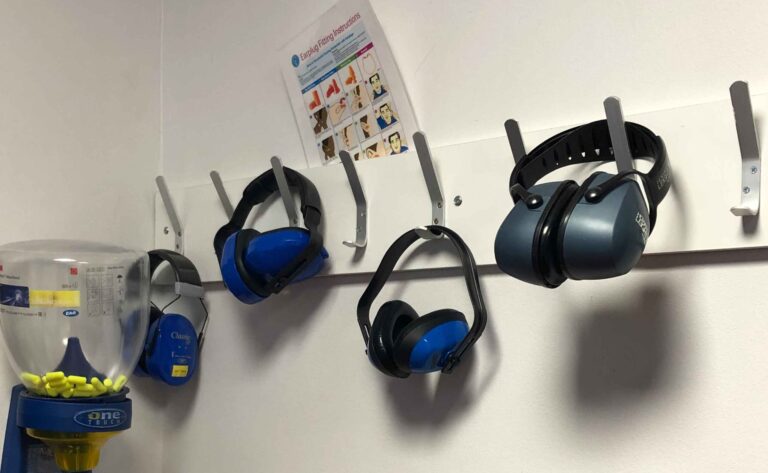Covid-19’s Impact on Inequalities
The pandemic has had an unequal impact on people working in the research & innovation sector. EDICa undertook a comprehensive study to review the impact it had specifically on inequalities.
Home » Covid-19 impact
Initial findings
In Autumn 2023, EDICa surveyed the UK’s research and innovation sector, exploring the medium- to long-term impact of the Covid-19 pandemic on equalities in the sector.
Age and Career Stage/Employment Span: The relationship between an individual’s age and their career stage, which significantly influences the duration of employment with their current employer, has been further nuanced by the COVID-19 pandemic. The pandemic has reshaped career trajectories, with older employees potentially facing different challenges and opportunities in maintaining employment or shifting careers.
Gender and Discipline/Job Security: The interplay between gender and field of work, which crucially affects perceptions of job security, has been markedly impacted by the COVID-19 pandemic. The pandemic has exposed and possibly exacerbated gender disparities in various professions, affecting job security perceptions differently for men and women. It underscores the need to consider how events uniquely influence job stability and career choices among genders, indicating shifts in workforce dynamics.
Health Conditions and Workplace Dynamics: Long-term health conditions are linked to factors like promotion opportunities and experiencing or witnessing bullying post-lockdown, and neurodivergence is related to feelings about one’s job as a whole in terms of satisfaction.
Mental Health and Organisational Support: The discipline a person is in relates to the support they receive for mental health, indicating variations in organisational support across different fields.
Work Environment and Various Factors: The working conditions, whether in a lab or office, correlate with numerous factors like access to funding, staff management relations, job satisfaction, and perceptions of equality and inclusion.
Pay Rates, Bullying, and Harassment: There’s a relationship between pay rates and job variety/satisfaction, and instances of bullying and sexual harassment post-lockdown are related to how inclusive and equitable the environment is perceived to be.
We look forward to sharing more detail once the quantitative analysis has been conducted.

Covid-19’s Impact on Inequalities – Indicative Findings Poster
Indicative findings
Based on 600 survey responses, click here to download our indicative findings.
Check out EDICa’s Resources
EDICa hosts a regular blog and seminars, as well as collecting a library of resources of equality, diversity & inclusion practices in research & innovation.

Seminar on Mental health in the research & innovation ecosystem: understanding the lived experiences of women – Recording
Recorded on 19 February 2025, watch the recording of two projects sharing findings on mental health and the lived experiences of women.

Symposium: Mitigating the Effects of Covid-19
Shared findings of EDICa’s Flexible Fund round 1 projects focusing on mitigating the impact of Covid-19 on research & innovation careers.

Widening access internship – reflections from an EDICa intern
Date: 23 October 2024
EDICa’s intern, Beth Wedgwood, writes about her experience of applying for, and working as, EDICa’s first intern.

Interviews
Sign up to interview with one of our researchers and share how the pandemic has impacted you and your career.




































